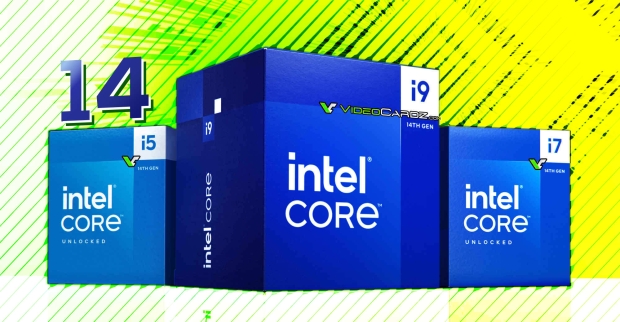Intel has launched a slew of new 14th Gen Core Desktop Non-K, 14th Gen Core-HX, and Core 100U series processors to join the already released 14th Gen Core and Core Ultra CPUs on the market in desktops and laptops right now.
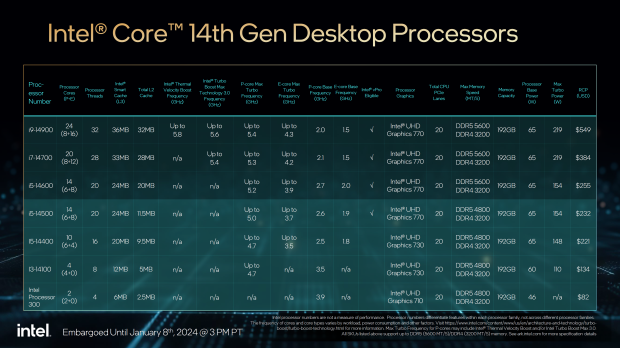
Intel's new range of 14th Gen Core Desktop non-K series CPUs (source: Intel)
The new Intel 14th Gen Core Desktop Non-K processors are based on the Raptor Lake Refersh silicon, offering up to 24 cores and 32 threads of CPU power. Intel's current Core-K "unlocked" series processors are on the market now, with a default TDP of between 46W and 65W of power. These new non-K series processors will be offered up with or without an integrated GPU, which will arrive as the new Core-F series processors and are slightly cheaper.
Intel's new Core i7, Core i5, and Core i3 processors will arrive with an Intel Laminar RM1 cooler, which is designed perfectly for these power-limited processors efficiently, with up to 154W of cooling capacity. The higher-end Core i9 processors in the new non-K series will have a beefier RH1 cooler that supports the Maximum Turbo Power of 219W on Core i9 non-K series processors.
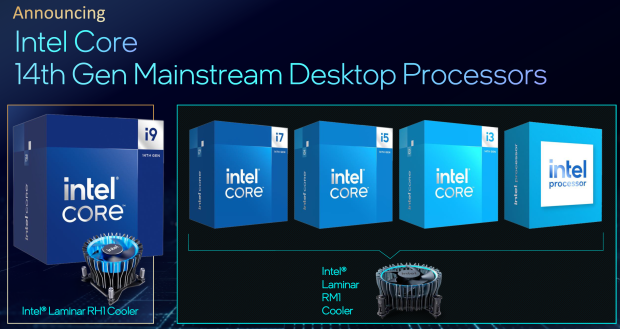
Intel's new range of 14th Gen Core Desktop non-K series CPUs (source: Intel)
Intel announced a total of 11 new processors in the 14th Gen Core Desktop non-K series, with 24 cores, 14 cores, 10 cores, 4 cores, and even a dual-core CPU. We've got the new flagship Core i9-14900 with 24 cores and 32 threads of CPU power with Thermal Velocity Boost of up to 5.8GHz, with a base 65W TDP and Max Turbo Power of up to 219W for $549.
At the bottom of the stack, we've got the new Intel Processor 300, which is a dual-core CPU with a base CPU frequency of 3.9GHz and a 46W TDP that costs $82, nice and cheap. The new Core i5-14500 seems good, with 14 cores and 20 threads of CPU power at up to 5.0GHz, 65W default TDP, and 154W Max Turbo Power costing $232.
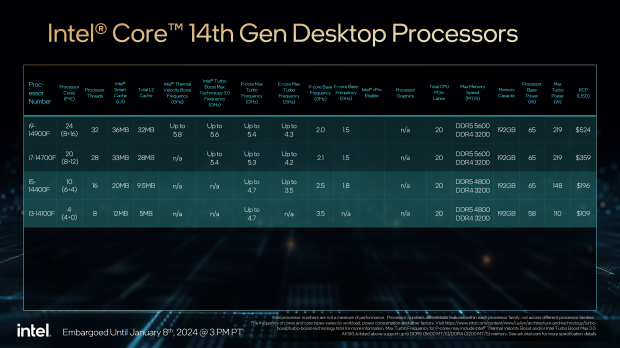
Intel's new range of 14th Gen Core Desktop non-K series CPUs (source: Intel)
If you don't need the integrated GPU that the above new Intel 14th Gen Core Desktop non-K series processors offer, there's the new flagship Core i9-14900KF processor with the same 24 cores, 32 threads, 5.8GHz clock speeds of the Core-F series CPU, costing $524, so you'll save $25 without the integrated GPU.
At the bottom of the Core-F series processor is the Core i3-14100F with 4 cores and 8 threads, boosting at up to 4.7GHz with a default 58W TDP and 110W Max Turbo Power costing $109.
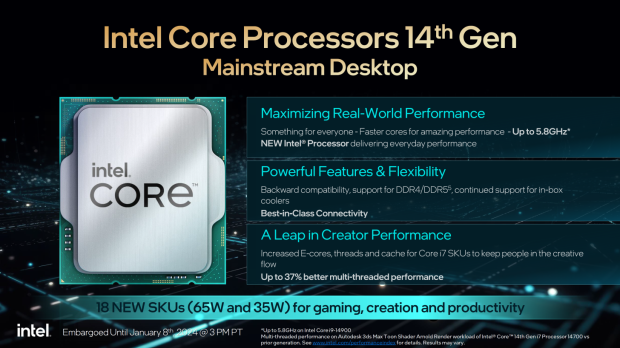
18 new SKUs of 65W + 35W Intel 14th Gen Core CPU details (source: Intel)
Intel's new mainstream 14th Gen Core Desktop non-K series processors offer CPUs like the Core i9-14900 and Core i9-14900F processors with 24 cores and 32 threads boosting at up to 5.8GHz, with support for either DDR4 or newer DDR5 memory, as well as a cooler in the box.
Intel reminds everyone that the increased E-Cores and threads and cache for Core i7 processors will help the creative flow through them with up to 37% better multi-threaded performance. There are 18 new processors in both 65W and 35W designs for gaming, creation, and productivity.
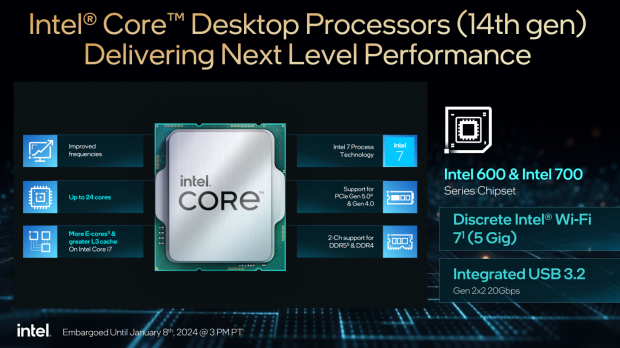
Intel's new 14th Gen Core Desktop non-K series CPUs deliver next level performance (source: Intel)
Intel's new 14th Gen Core Desktop non-K processors feature improved frequencies, up to 24 cores, more E-Cores, and L3 cache; they're made on the Intel 7 process node, feature support for PCIe 5.0 and PCIe 4.0, with dual-channel DDR5 and DDR4 memory support. They'll work on the Intel 600 and Intel 700 series chipset, with discrete Wi-Fi 7 and integrated USB 3.2 Gen 2x2 20Gbps, too.
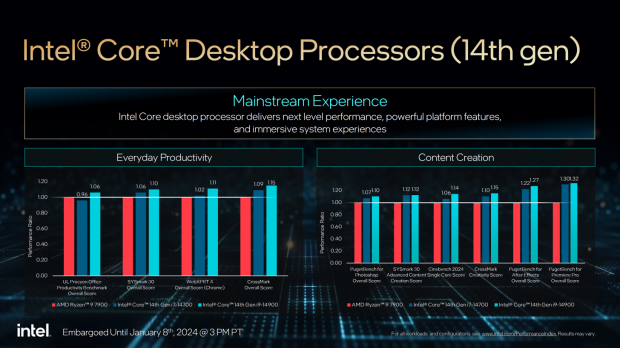
Intel's new Core i9-14900 benched against other CPUs (source: Intel)
Intel has some benchmarks of its new Core i7-14700 and Core i9-14900 processors up against the AMD Ryzen 9 7900 processor in a bunch of benchmarks, showing the mainstream experience is improved with their new 14th Gen Core Desktop non-K series processors.
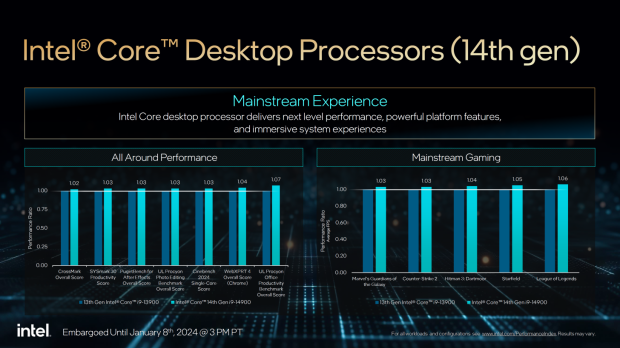
Intel's new Core i9-14900 benched against Core i9-13900 (source: Intel)
Intel also compares its new Core i9-14900 processor against its previous-gen Core i9-13900 processor in a bunch of benchmarks as well as mainstream gaming, with titles like Counter-Strike 2, Starfield, and League of Legends benchmarked. Small, but welcome improvements against the Core i9-13900.

